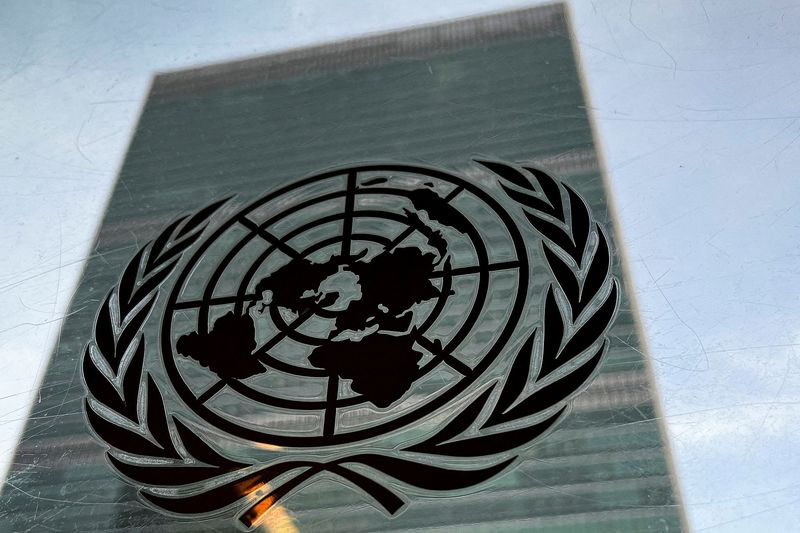Five nations elected to U.N. Security Council, but Belarus denied
2023.06.06 12:41

© Reuters. FILE PHOTO: The United Nations headquarters building is pictured with a UN logo in the Manhattan borough of New York City, New York, U.S., March 1, 2022. REUTERS/Carlo Allegri
UNITED NATIONS (Reuters) – The United Nations General Assembly elected Algeria, Guyana, Sierra Leone, Slovenia and South Korea to the U.N. Security Council on Tuesday for two-year terms starting on Jan. 1, 2024, while Belarus – allied with Russia in its invasion of Ukraine – was denied a spot.
Algeria, Guyana, Sierra Leone and South Korea ran unopposed for a spot on the 15-member body, which is charged with maintaining international peace and security. In the only competitive race, Slovenia beat out Belarus. The five elected nations will replace Albania, Brazil, Gabon, Ghana and the United Arab Emirates.
The Security Council is the only U.N. body that can make legally binding decisions such as imposing sanctions and authorizing use of force. It has five permanent veto-wielding members: Britain, China, France, Russia and the United States.
To ensure geographical representation, seats are allocated to regional groups. But even if candidates are running unopposed in their group, they still need to win the support of more than two-thirds of the General Assembly.
Guyana received 191 votes, Sierra Leone 188, Algeria received 184 votes, South Korea 180.
Slovenia won 153 votes to beat Belarus, which received 38 votes.
Belarus had been a candidate unopposed since 2007 for the 2024/25 Eastern European seat. Slovenia entered the race in December 2021 after a brutal crackdown by the authorities in Belarus on protests following a 2020 presidential election.
Russia has since used the territory of Belarus as a launchpad for its invasion of Ukraine in February 2022.
“The Russians have always argued that a lot of states support Ukraine in public at the U.N., but sympathize with Russia in private. But this secret ballot does not support that claim at all,” International Crisis Group U.N. Director Richard Gowan said.
Russia moved ahead last month with a plan to deploy tactical nuclear weapons in Belarus. It is the Kremlin’s first deployment of such weapons outside Russia since the 1991 fall of the Soviet Union.








